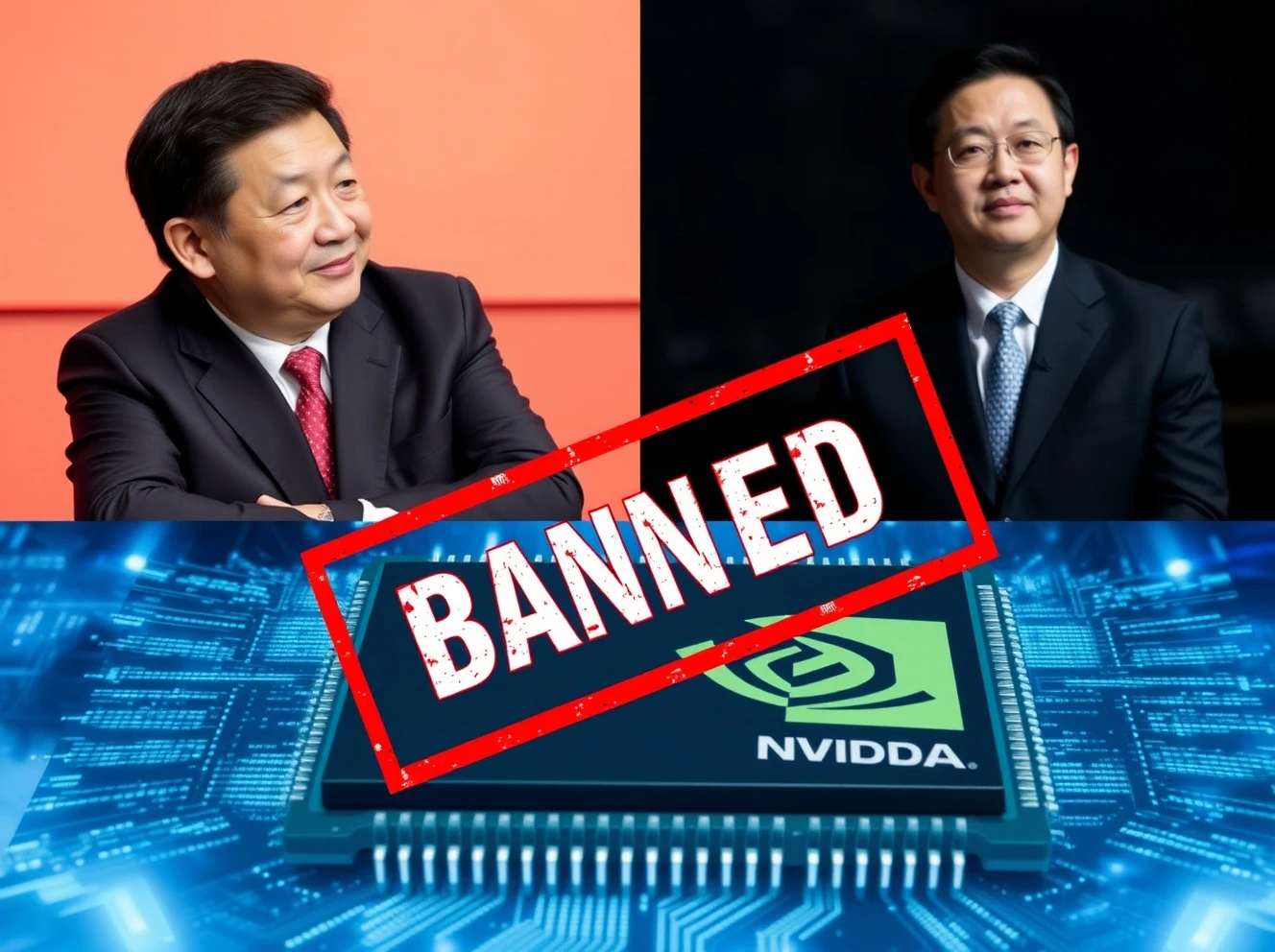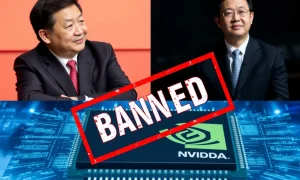China’s technology sector faces a seismic shift as the government officially prohibits domestic companies from purchasing Nvidia AI chips, creating immediate challenges for AI development and semiconductor independence. This decisive move marks a critical turning point in the ongoing tech trade tensions between global superpowers.
Government Mandate on Nvidia AI Chips
The Cyberspace Administration of China issued a formal directive on Wednesday banning technology firms from acquiring Nvidia AI chips. This action specifically targets companies including ByteDance and Alibaba, requiring them to immediately cease testing and ordering Nvidia’s RTX Pro 6000D servers. Consequently, these organizations must rapidly adapt to alternative solutions.
Impact on China’s Tech Ecosystem
This prohibition delivers a substantial blow to China’s artificial intelligence advancement. While local manufacturers like Huawei and Alibaba design their own AI chips, Nvidia maintains global market leadership with superior technology. Therefore, Chinese companies now face significant performance gaps in AI computing capabilities.
Nvidia’s Response and Financial Implications
Nvidia CEO Jensen Huang expressed disappointment during a recent press conference, stating the company must respect national decisions. Huang revealed Nvidia anticipated $8 billion in revenue loss during the second quarter alone from restricted Chinese sales. Moreover, the company excluded China from future profit forecasts since June.
Historical Context and Trade Tensions
The Trump administration initially imposed licensing requirements for semiconductor companies exporting AI chips to China in April. Although temporary permissions were granted in July, the U.S. government demanded 15% revenue share from Chinese sales. However, implementation delays prevented actual chip transfers under this arrangement.
Local Alternatives and Strategic Shift
Beijing actively promotes domestic semiconductor alternatives through various incentive programs. Chinese companies now accelerate development of homegrown AI chips to reduce foreign dependency. This strategic pivot aims to achieve technological self-sufficiency amid growing geopolitical tensions.
Market Reactions and Future Projections
Industry analysts predict short-term disruptions in China’s AI research and development capabilities. Meanwhile, international semiconductor markets may experience redistribution patterns as supply chains adjust. Consequently, global AI innovation could face temporary slowdowns during this transition period.
FAQs
Which Chinese companies are affected by the Nvidia AI chips ban?
ByteDance, Alibaba, and other major technology firms must immediately stop purchasing and testing Nvidia AI chips according to the government directive.
How will this impact China’s artificial intelligence development?
The ban creates significant challenges as Nvidia chips represent industry-leading technology, potentially slowing AI innovation and implementation across Chinese tech sectors.
What alternatives do Chinese companies have for AI chips?
Companies can utilize domestic alternatives from Huawei, Alibaba, and other Chinese semiconductor manufacturers, though these may offer reduced performance capabilities.
How has Nvidia responded to the Chinese market restrictions?
Nvidia expressed disappointment but respects national decisions, while acknowledging substantial revenue losses and excluding China from future financial forecasts.
Are there any exceptions to this ban?
Current reports indicate comprehensive restrictions without exceptions, covering all Nvidia AI chip products including specially designed variants for the Chinese market.
How does this relate to broader US-China trade tensions?
This development represents another chapter in ongoing technology trade disputes, reflecting both countries’ strategies for semiconductor independence and technological supremacy.








